Search Results
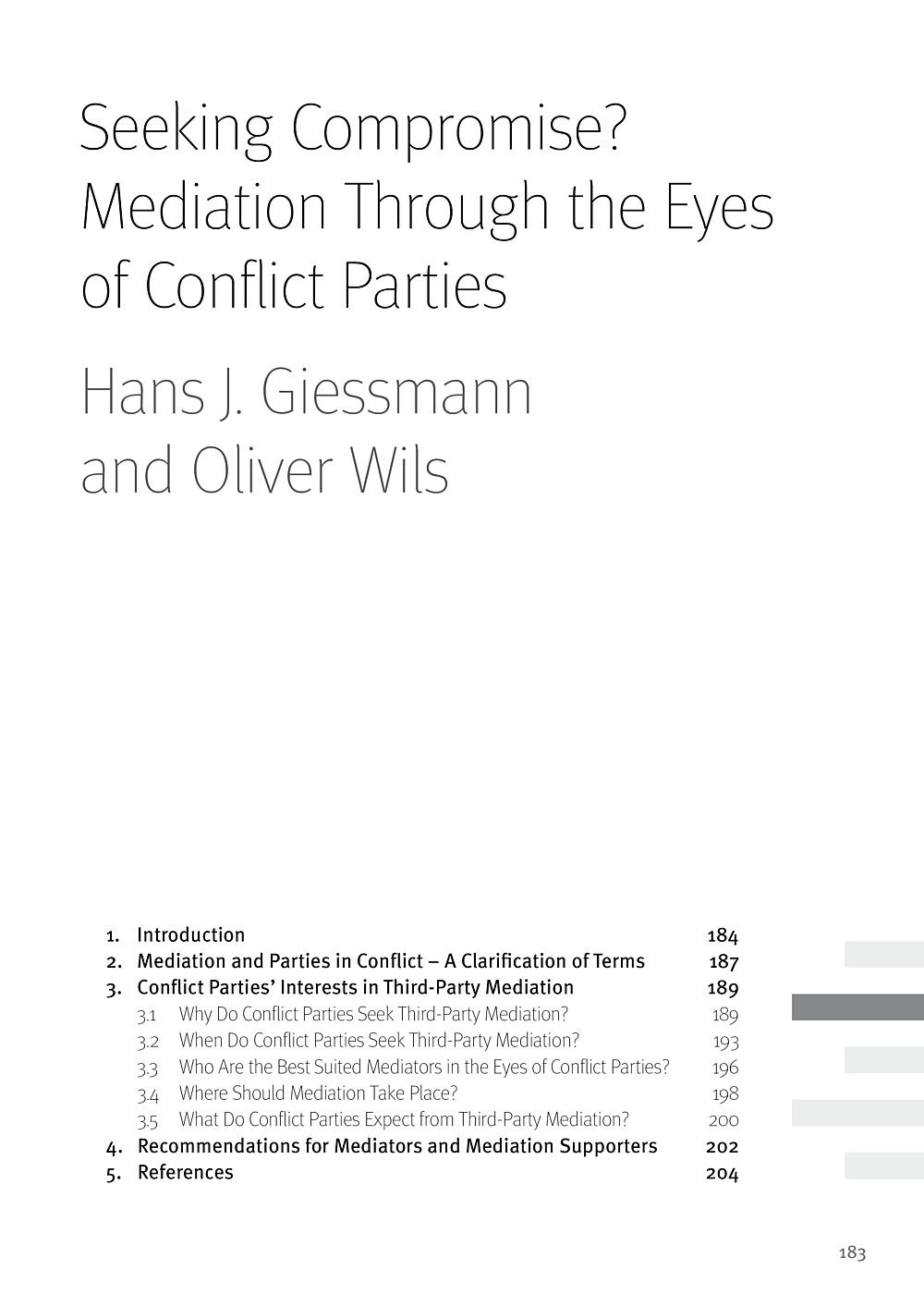
Seeking Compromise? Mediation through the Eyes of Conflict PartiesHandbook Article
- Year 2011
- Author(s) Hans-Joachim Giessmann, Oliver Wils
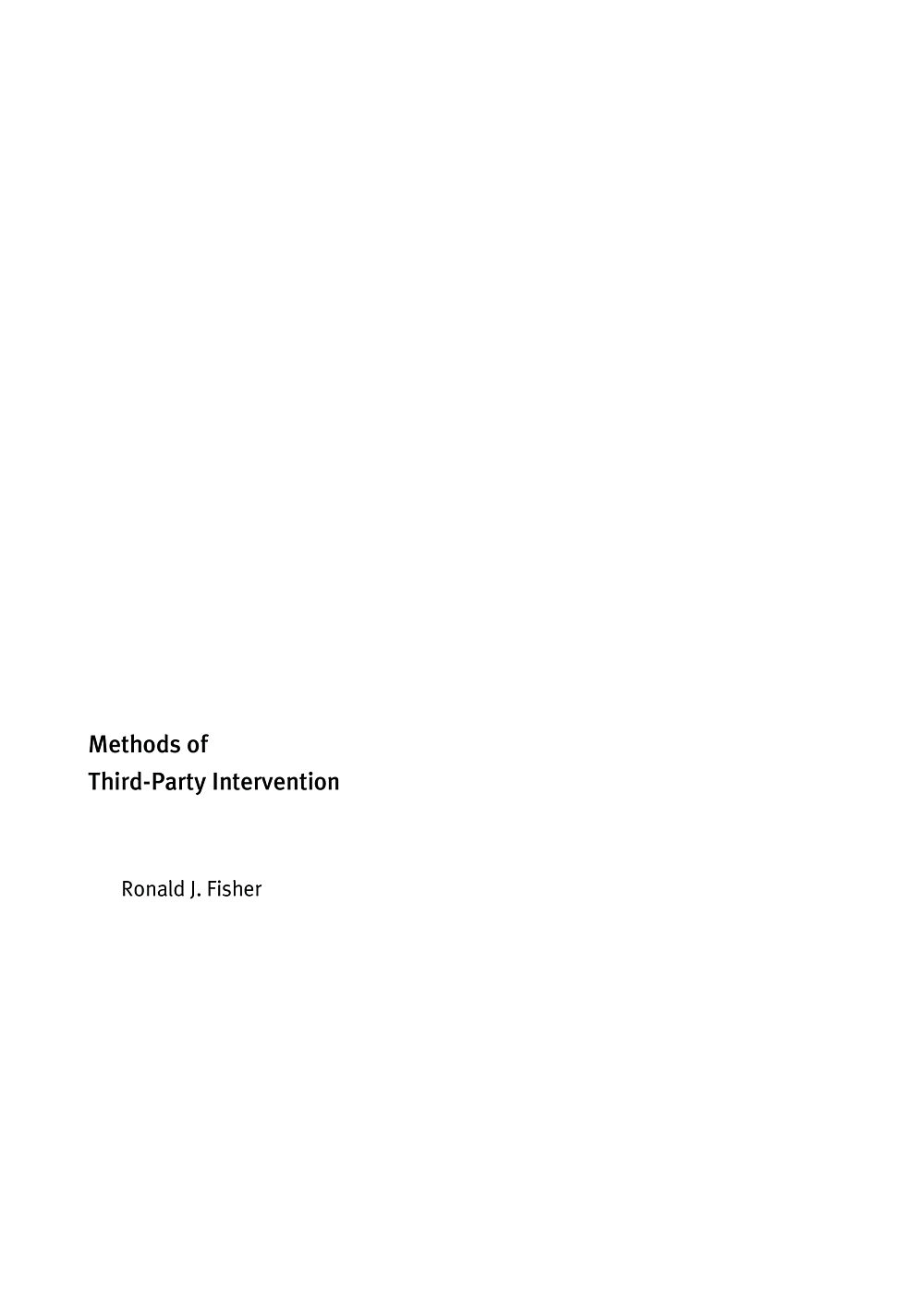
Methods of Third-Party InterventionHandbook Article
- Year 2001
- Author(s) Ron Fisher
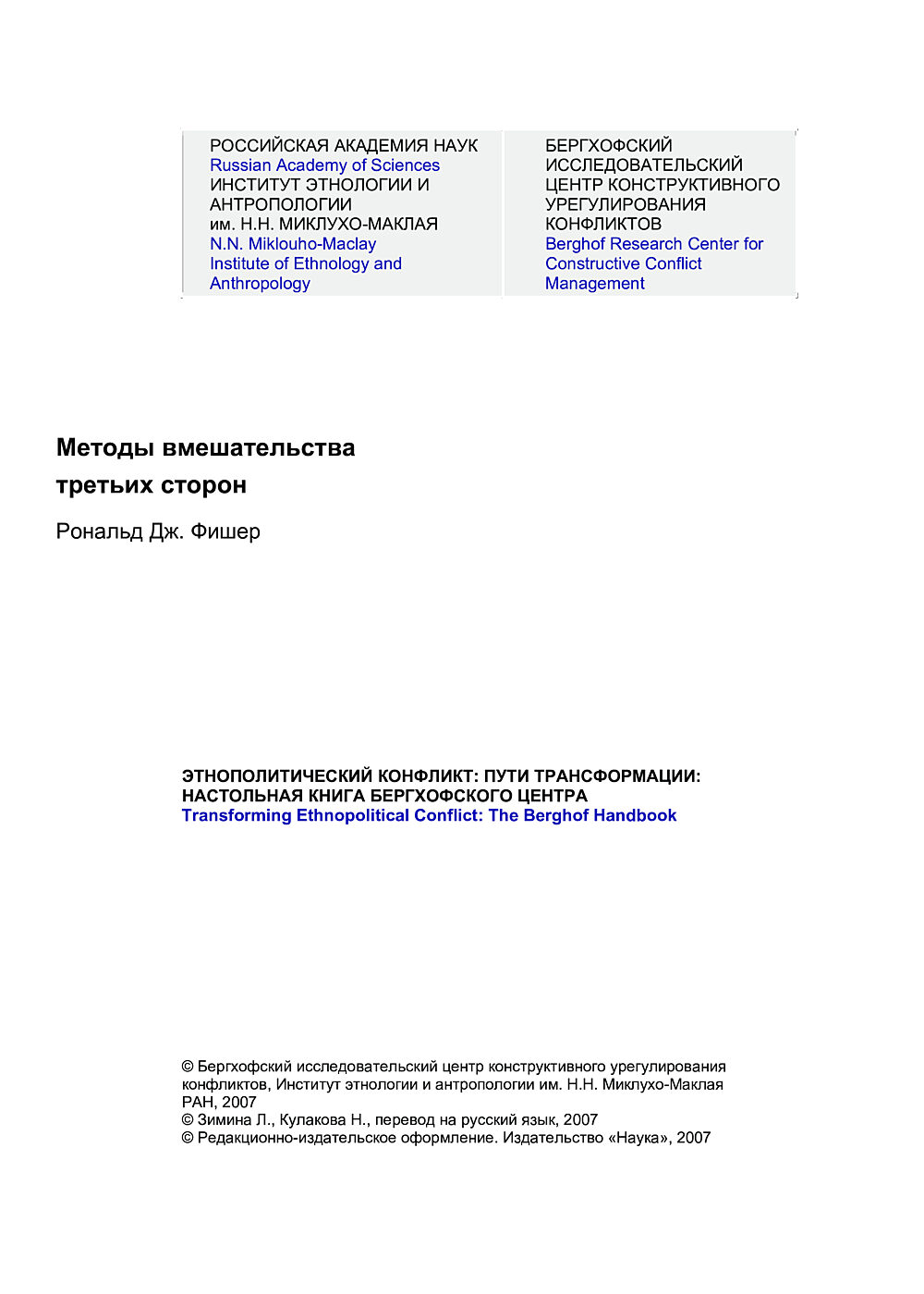
Методы вмешательства третьих сторонHandbook Article
[Аннотация машинный перевод] Рассматриваются различные формы вмешательства третьих сторон (например, примирение, консультации, посредничество, силовое посредничество, арбитраж и миротворчество) с упором на посредничество. Используя базовую модель на случай непредвиденных обстоятельств, автор описывает, какая роль третьей стороны может быть наиболее успешной в каком контексте. Представлены критические вопросы, в том числе: культура, асимметрия власти, предубеждения, время, эффективность, координация и этика вмешательства. (обновлено и исправлено для печатного издания 2011 г.)
- Year 2007
- Author(s) Ron Fisher
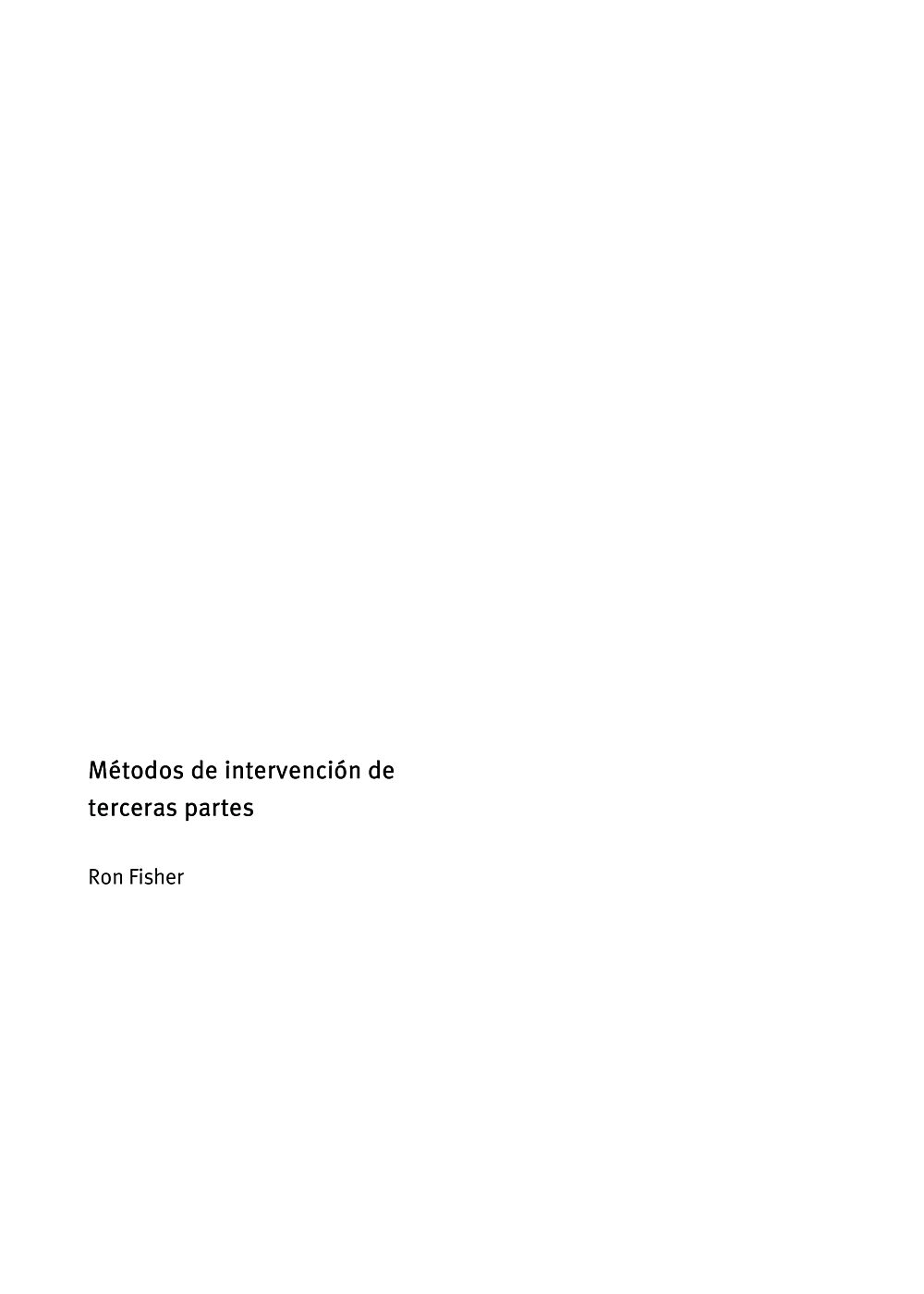
Métodos de intervención de terceras partesHandbook Article
[Resumen traducido automáticamente] Revisa varias formas de intervención de terceros (por ejemplo, conciliación, consulta, mediación, mediación de poder, arbitraje y mantenimiento de la paz), centrándose en la mediación. Usando un modelo de contingencia básico, el autor describe qué rol de tercero puede ser más exitoso en qué contexto. Se introducen temas críticos, que incluyen: cultura, asimetrías de poder, sesgos, oportunidad, efectividad, coordinación y ética de la intervención. (actualizado y revisado para la edición impresa de 2011)
- Year 2002
- Author(s) Ron Fisher
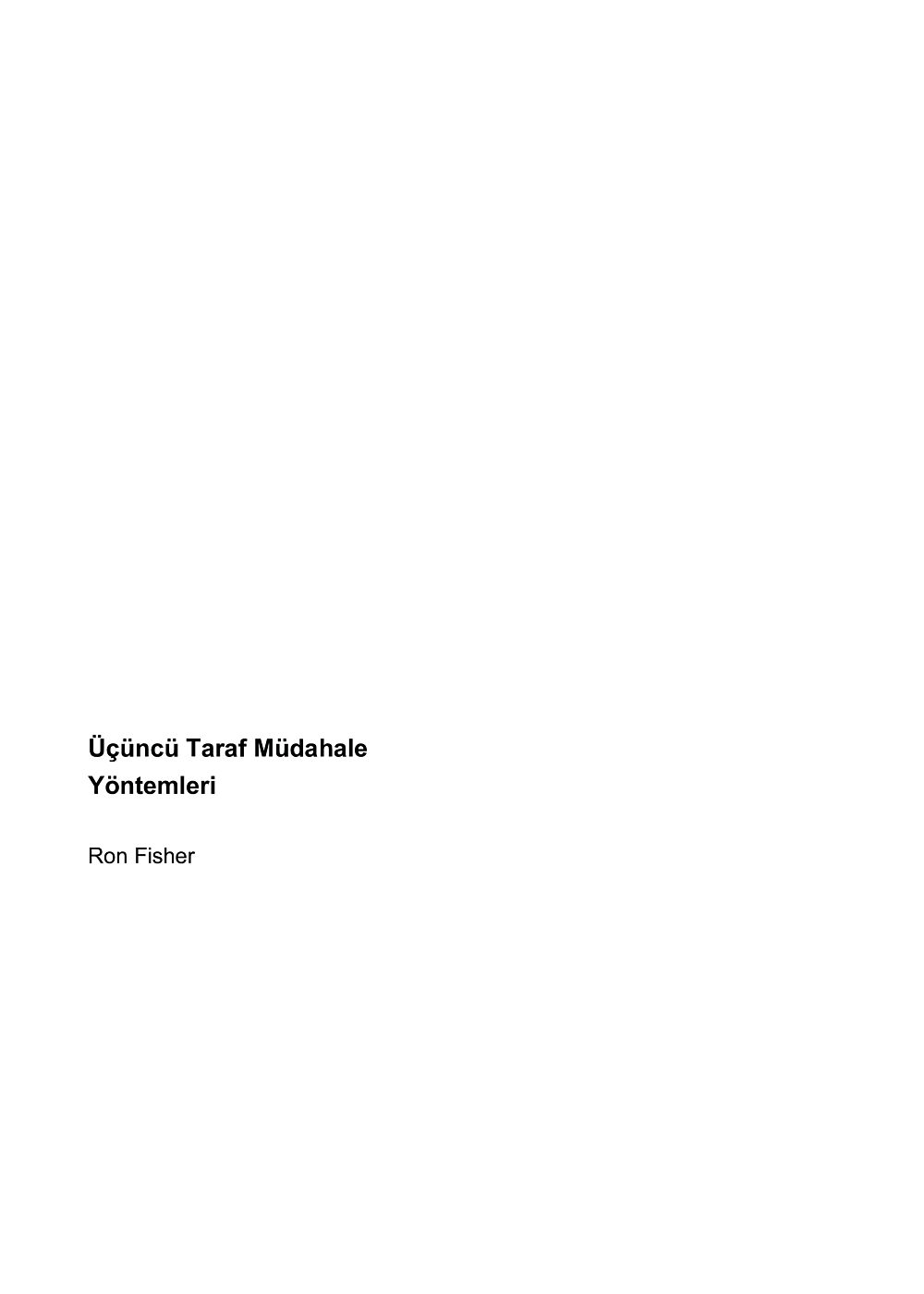
Üçüncü Taraf Müdahale YöntemleriHandbook Article
[Özet makine çevirisi] Arabuluculuğa odaklanarak çeşitli üçüncü taraf müdahale biçimlerini (örneğin uzlaştırma, danışma, arabuluculuk, iktidar arabuluculuğu, tahkim ve barışı koruma) inceler. Yazar, temel bir beklenmedik durum modeli kullanarak, hangi üçüncü taraf rolünün hangi bağlamda en başarılı olabileceğini özetlemektedir. Kültür, güç asimetrileri, önyargılar, zamanlama, etkililik, koordinasyon ve müdahale etiği dahil olmak üzere kritik konular tanıtılır. (2011 baskı baskısı için güncellenmiş ve revize edilmiştir)
- Year 2002
- Author(s) Ron Fisher
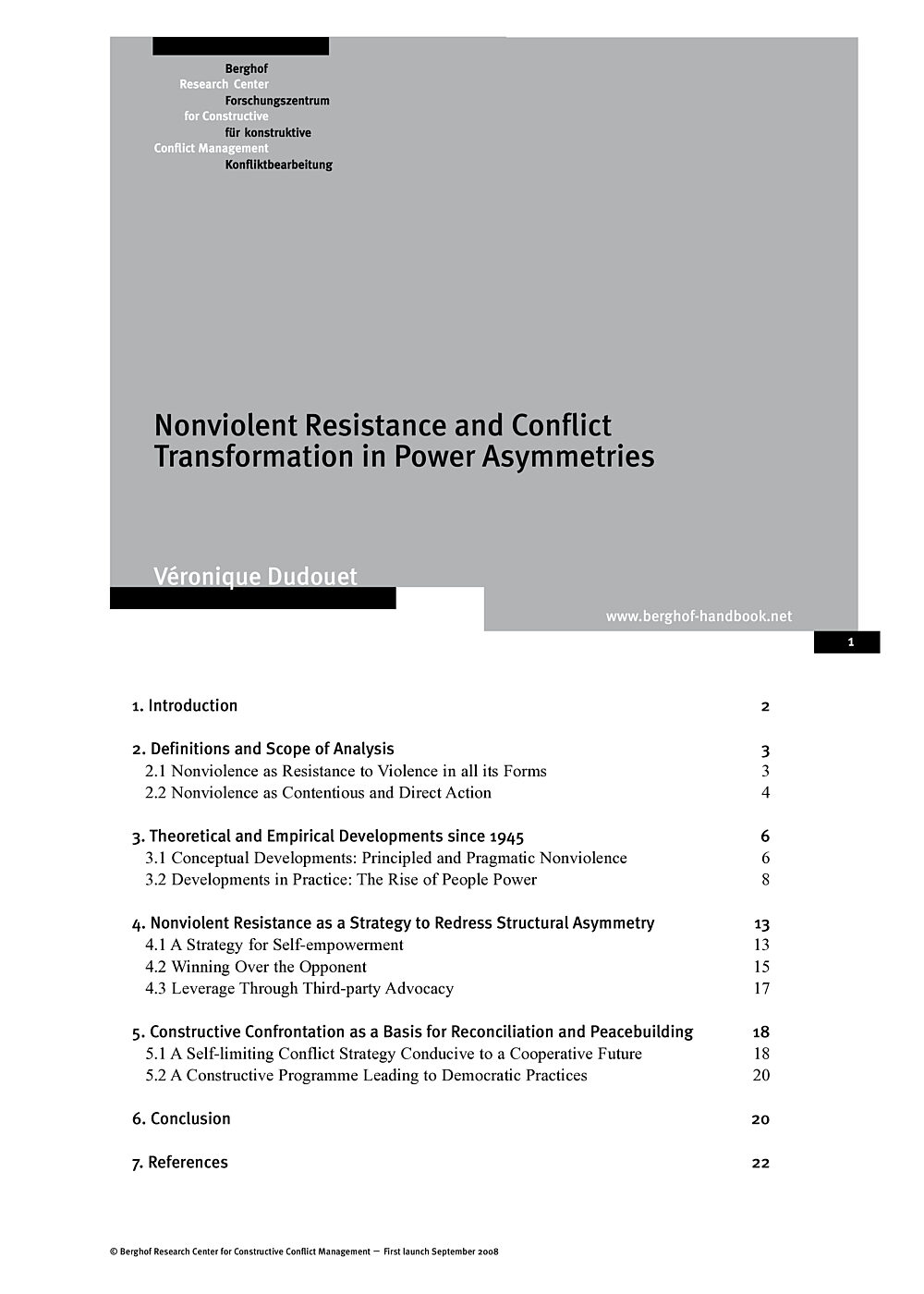
Nonviolent Resistance and Conflict Transformation in Power AsymmetriesHandbook Article
This article examines the contribution of nonviolent resistance to conflict transformation processes. It reviews conceptual and empirical developments in the field of nonviolent resistance (both ‘principled’ and ‘pragmatic’ trends), and examines the roles played by nonviolent action in support of peacemaking and peacebuilding, by transforming unbalanced power relations in preparation for conflict negotiations, and by using self-limiting conflict strategies which reduce inter-party polarisation and encourage democratic practices. Empirical illustrations are drawn from the first Palestinian intifada (1987-1993).
- Year 2008
- Author(s) Véronique Dudouet

Resistencia no violenta en las asimetrías de poderHandbook Article
[Resumen traducido automáticamente] Este artículo examina la contribución de la resistencia noviolenta a los procesos de transformación de conflictos. Revisa los desarrollos conceptuales y empíricos en el campo de la resistencia noviolenta (tendencias tanto 'de principios' como 'pragmáticas'), y examina los roles que desempeña la acción noviolenta en apoyo del establecimiento y la consolidación de la paz, transformando las relaciones de poder desequilibradas en preparación para las negociaciones de conflictos. y mediante el uso de estrategias de conflicto autolimitadas que reducen la polarización entre partidos y fomentan las prácticas democráticas. Las ilustraciones empíricas se extraen de la primera intifada palestina (1987-1993).
- Year 2012
- Author(s) Véronique Dudouet
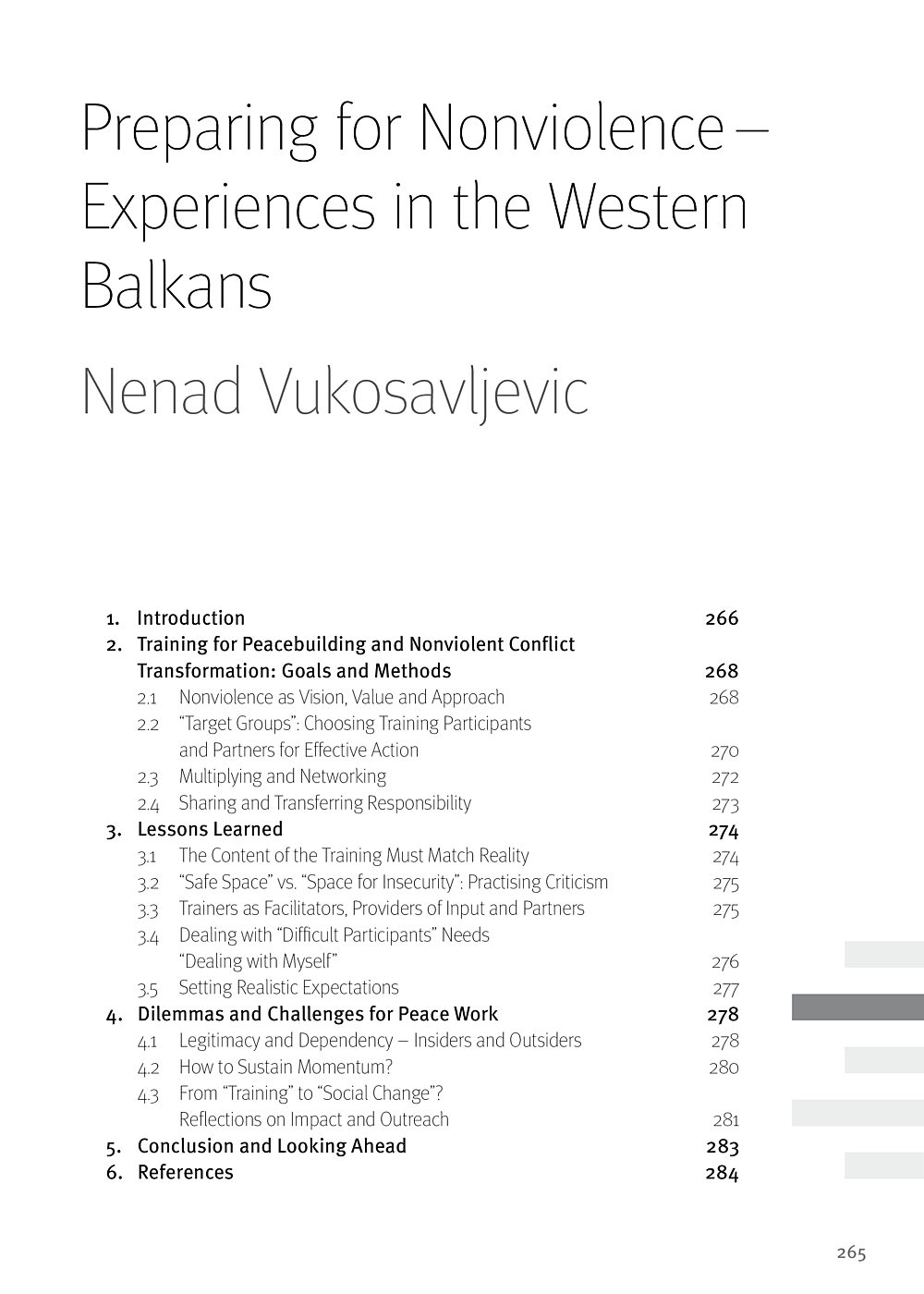
Preparing for Nonviolence – Experiences in the Western BalkansHandbook Article
- Year 2011
- Author(s) Nenad Vukosavljevic

Training for Conflict Transformation – An Overview of ApproachesHandbook Article
Seeks to provide a first orientation for an audience less familiar with the field of conflict transformation and its educational possibilities. Questions raised include: who is offering training for which target audience? What are strengths and shortcomings? Are there criteria that help assess training? What challenges remain, what recommendations can be made for improving training offers? The article has an extensive reference section covering training manuals and materials, organisations, resources and analyses. (updated and revised for 2011 print edition)
- Year 2011
- Author(s) Beatrix Austin
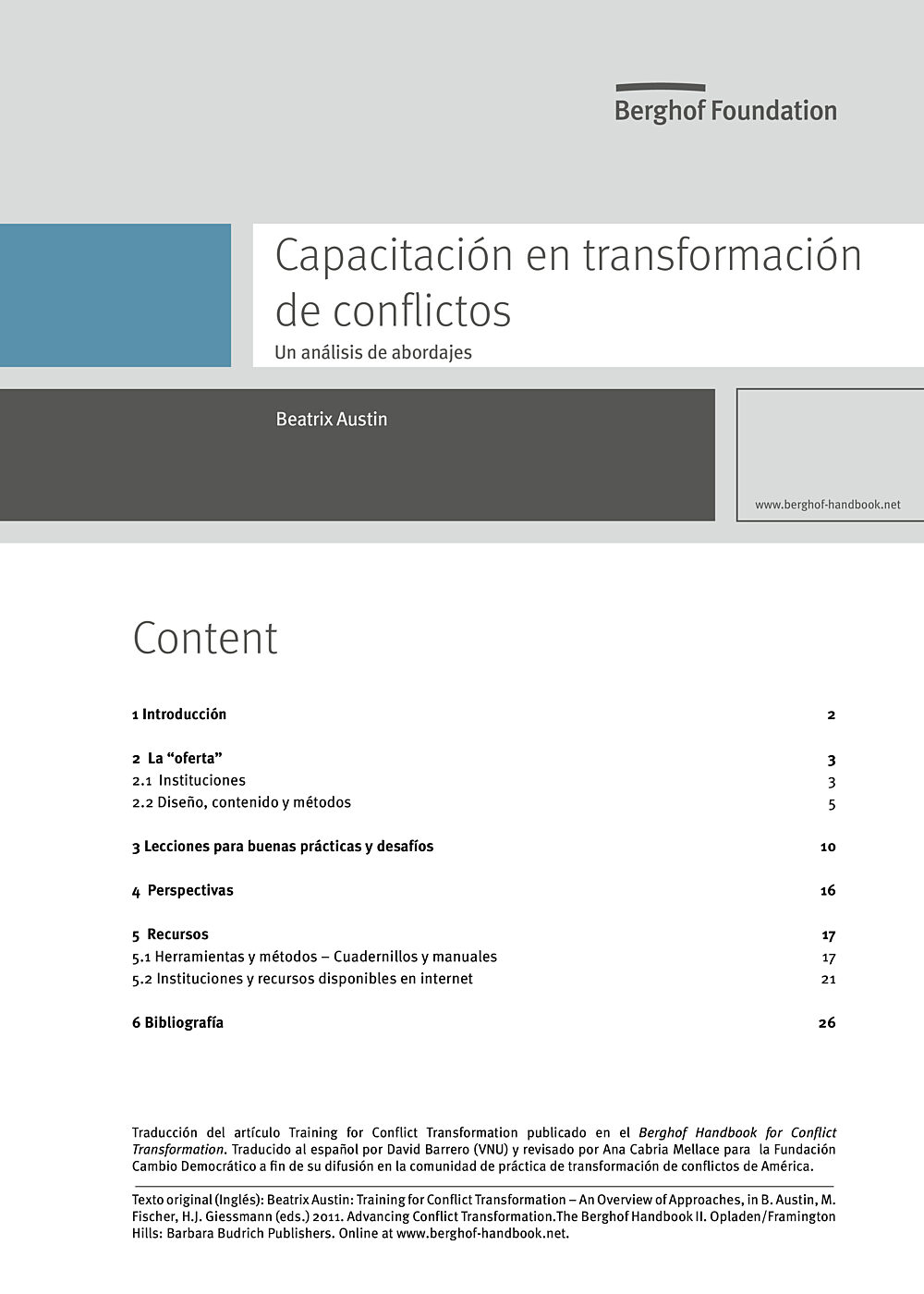
Capacitación en transformación de conflictos. Un análisis de abordajesHandbook Article
[Resumen traducido automáticamente] Busca proporcionar una primera orientación para una audiencia menos familiarizada con el campo de la transformación de conflictos y sus posibilidades educativas. Las preguntas planteadas incluyen: ¿quién ofrece formación para qué público objetivo? ¿Cuáles son las fortalezas y las deficiencias? ¿Existen criterios que ayuden a evaluar la formación? ¿Qué retos quedan, qué recomendaciones se pueden hacer para mejorar la oferta formativa? El artículo tiene una sección de referencia extensa que cubre manuales y materiales de capacitación, organizaciones, recursos y análisis. (actualizado y revisado para la edición impresa de 2011)
- Year 2013
- Author(s) Beatrix Austin